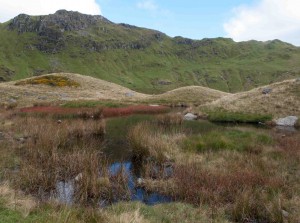Environmental organisations in the UK were unanimous in their support for a vote to stay before the Brexit referendum. They believed that the best protection of the environment on the British Isles were to be had by EU legislation. The question is whether we, now that the UK has decided to leave, should dry our eyes and congratulate our continental colleagues on having gotten rid of a serious obstacle?
Well, if we look at the bigger picture then the UK has actually done the rest of EU a huge favour. The UK government have several times lobbied for revisions of protective legislation and tried to influence key votes on environmental issues. Here are a couple of examples.
The Habitats Directive
Almost 25 years ago the EU adopted the Habitats Directive. This created the Natura 2000 network of protected sites. Sites which are designed to protect the most seriously threatened habitats and species across Europe; safeguarding them against potentially damaging development. The Natura 2000 network protects over 1000 animal and plant species and 200 habitat types of European importance.

In 2014 the new European Commissioner for environment, maritime affairs and fisheries was tasked with ”overhauling the existing environmental legislative framework to make it fit for purpose”. This included a request to carry out an in depth evaluation of the Birds and Habitats Directives. Since then environment ministers from several countries, including France and Germany, have written to commissioner Vella and urged him not to weaken nature protection legislation.
The environment ministers are not the only ones protesting the proposed revision of the directives. Several MEPs have also written to the Commission urging them to keep the legislation. The UK government though, have been supportive of Juncker’s efforts. This support has come in face of their own evidence. Chancellor George Osborne stated in 2011 that his government would “make sure that gold plating of EU rules on things like habitats aren’t placing ridiculous costs on British businesses”. This led to a review of the directives by the Department for Food and Rural Affairs. They published a report in 2012 which found that the directives were largely working well.
Disappearing bees
The UK government also seems to have little regard for bees and their importance for both biodiversity and the pollination of crops. Bee populations have dramatically declined in later years. Scientists strongly suspect that a type of pesticides called neonicotinoids is at least partly responsible for this. Neonicotinoids acts as a nerve agent on bees and other invertebrates. In 2012 the European Food Safety Authority reviewed the scientific evidence on the matter. This led EU to adopt the first ban on the use of these pesticides in 2013.
Photo credit:Edwyn Anderton, flickr
The UK government didn’t vote in favour of the ban and actively lobbied against it. In 2015 they proceeded to temporarily suspend the ban on the application of the National Farmers’ Union. This happened despite the fact that the government’s own Experts Committee on Pesticides refused to back the request. Over 500.000 people in the UK signed a petition to stop the suspension. This petition was ignored.
Looking at the bigger picture
These two examples are unfortunately not the only ones. So, is it time for the British environmental campaigners to look at the bigger picture and not be so sad about the UK leaving EU? In spite of the love we have for our wildlife here in the UK it is fairly bog standard. We have few endemic species or habitats found nowhere else. So if the UK is a bad influence in EU environmental matters, then maybe we should give the continent a cheery wave and wish them good luck. It’s going to be hard though..
This is a revised version of a piece originally published on the Politheor Policy Network before the Brexit referendum.
